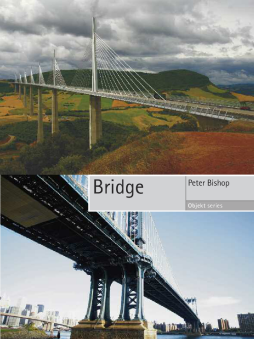
Additional Information
Book Details
Abstract
Whether a humble string of planks swaying across a trickling stream or the soaring towers of the Golden Gate Bridge, bridges are one of man’s great engineering feats. Now in Bridge, Peter Bishop provides a comprehensive historical account of their role in the advancement of human culture.
From ancient Roman arches to the rail bridge of Lhasa to the suspension bridge over Niagara Falls, Bishop traverses the full span of the globe to examine numerous incarnations and their diverse architectural styles. The book tackles a wide range of issues, including the design and construction of “mega-spans” such as Hong Kong’s Tsing Ma Bridge; the integral role of bridges in railroad networks; and the social dynamics of class and mobility that surround urban bridges in cities such as New York. Drawing upon sources in art, politics, science, philosophy, and the media, Bishop argues that the cultural meaning of bridges today revolves around the idea of expanding geographical claims, rather than connecting to others, and he explores the implications of that idea for the future. A fascinating and richly illustrated study, Bridge will engage enthusiasts of planning, architecture, and design alike.
Peter Bishop is associate professor in the School of Communications, Information, and New Media at the University of South Australia. He is also the author of An Archetypal Constable.
